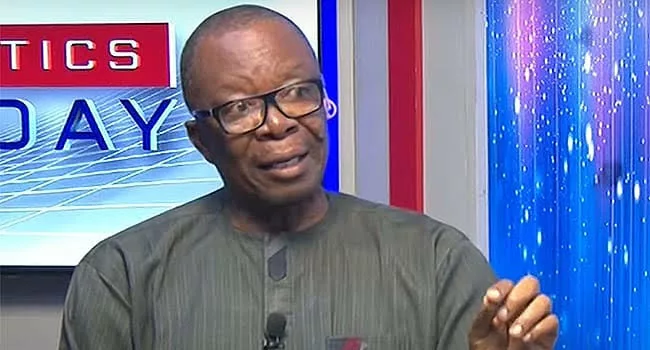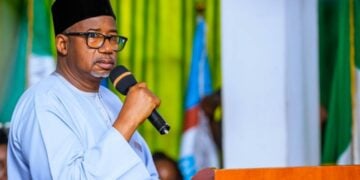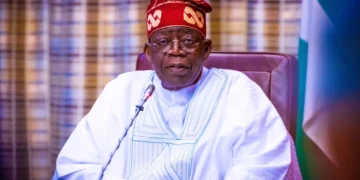Key education stakeholders have stressed the urgent need for sincere commitment and attention from both national and sub-national governments to foster significant development in the education sector in 2024.
Reflecting on the preceding year and looking forward to the New Year, Prof. Emmanuel Osodeke, the National President of the Academic Staff Union of Universities (ASUU), noted that the sector experienced no substantial changes in 2023.
He stressed the necessity for robust political will to revamp the sector, propelling the country towards accelerated growth and development.
“Frankly, there were no significant changes in the sector throughout the past year. It falls short of our expectations, especially in terms of budgetary allocation. The allocated budget for education remains stagnant and insufficient for transformative improvements,” remarked Osodeke.
He cited various challenges, including poor educational environments, inadequate infrastructure, scarce instructional materials, low remuneration for sector employees, and funding constraints.
“Honestly, I will say nothing significant actually changed in the entire sector during the year under review. It is practically nothing close to what we want, especially as it concerns budgetary allocation.
“It is not different from what we used to have in the past eight years. It is not getting any better. Just look at the amount that was allocated to the sector this year. Does it show we seriously want transformation?
“The budget proposed, which was 8.8 per cent, still fell short of the global education agency, UNESCO’s recommended 26 per cent expenditure on the sector.
“Away from the budget, we are all witness to the poor education environment, infrastructure, little or non-existing instructional materials across the board, poor remuneration for workers in the sector and of course the much talked about funding.
“Oftentimes, these budgets, when passed, are hardly properly implemented. I hope we look at the sector holistically and x-ray the areas of concern in a bid to proffer solutions to them for a better Nigeria,” the ASUU leader said.
Osodeke stressed the importance of the government’s actions matching its promises, particularly regarding allocated funds for crucial educational projects to yield desired outcomes.
He commended several state governments, such as Enugu, Abia, and Oyo, for passing notable budgets earmarked for education, underscoring the importance of these commitments. Osodeke advocated for prioritising education as a vital pillar in national development.
“I want to say I like what some state governments have just done in terms of budget allocation for the sector in the coming year.
“It means we are gradually coming to terms with the place of education in nation-building.
“States, like Enugu for instance, have passed a 33 per cent budget in education in the state, and I would like to say this is historic. Abia and Oyo both passed 20 and 21 per cent respectively and I want to say this will be highly commendable if implemented.
“These three state governments must be appreciated if they implement these budgets as expected, as this is the way to go and also hope the Federal Government takes a cue from them.
“As I mentioned earlier, we have what it takes to solve our problems all by ourselves as a people, and not foreigners.
“We must stop running to the Western world for one favour or the other, look inward and in doing so, education should be our top priority,” Osodeke said.
Senate President of the National Association of Nigerian Students (NANS), Mr. Akinteye Afeez, expressed dissatisfaction with the state of education in 2023. Afeez hopes for the actualization of government promises in 2024, such as the provision of CNG buses, bursaries, and increased education budgets, aiming for improved educational standards and the resolution of ASUU strikes.
“Education has not done any better than we used to have. There is still no remarkable improvement in the sector as a whole; it has not changed from what was obtained in previous years.
“We just hope the policies of government as promised in 2024 will kickstart in earnest. Examples are the CNG buses promised by the Federal Government, bursaries and increments in the education budget.
“We hope we have also really said goodbye to ASUU strikes and hope for better years ahead. But as far as we are concerned, education in the year under review did not fare well,” Afeez stated.
Former Minister of Education, Prof. Chinwe Obaji, called for intensified monitoring and supervision of both private and government-owned institutions to ensure quality education. She stressed the need to curb exploitative tendencies, citing exorbitant fees charged by some private secondary schools for public exam registrations, and the need for discipline among school administrators.
“I think government must step up efforts in beaming its searchlights in the schools, especially the private-owned secondary schools where some teachers and management rip parents off their hard-earned money in the name of carrying out one academic task or the other.
“Some parents have been coming up with several complaints concerning the outrageous demands made by some of these private schools.
“ The most worrisome of them is the outrageous fees these schools tend to quote for these parents as amount meant for the registration of public examinations such as the Senior School Certificate Examination by NECO and the West African Senior School Certificate Examination (WASSCE) by WAEC.
“These fees tend to be a far cry from the standard fees fixed by the two examination bodies.
“In the same vein, such light must also be beamed on some public schools, where it has been discovered that some teachers abandon their line of duties to engage in petty trade or other things.
“There must seem to be that passion, dedication and discipline on the side of school administrators as well, not just government alone.
“All hands must be on deck to take the sector to the much-desired height,” the former minister said.
The stakeholders collectively noted the critical role of education and called for joint efforts to elevate the sector to meet desired standards. (NAN)
We’ve got the edge. Get real-time reports, breaking scoops, and exclusive angles delivered straight to your phone. Don’t settle for stale news. Join LEADERSHIP NEWS on WhatsApp for 24/7 updates →
Join Our WhatsApp Channel










